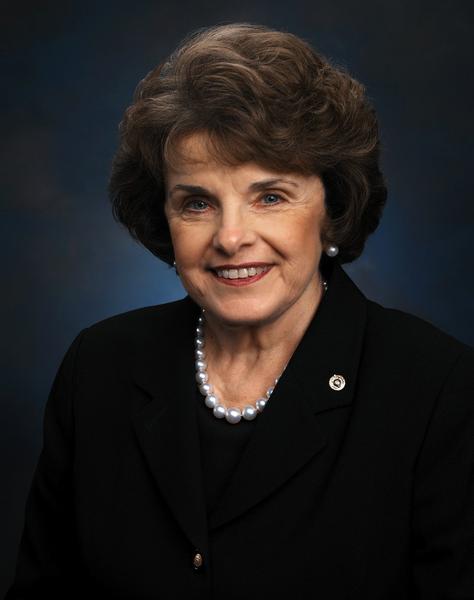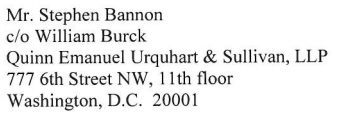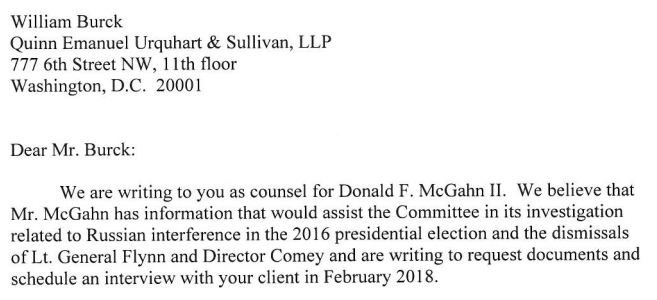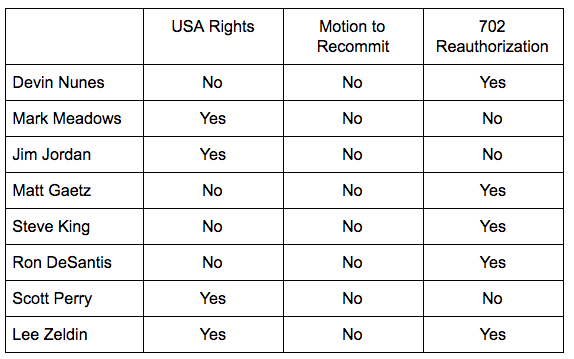Dear JD Gordon [and Jared]: Mueller Has 17 Prosecutors; White House Obstruction Accounts for Just One
The WaPo has a piece reporting (with details about John Kelly’s “collusion” with Attorney General Jeff Sessions, who is supposed to be recused) what I noted here: Trump wants the Devin Nunes memo to come out, even in spite of the warnings about how releasing it will damage national security.
It rather absurdly claims that Mueller is “narrowing” his probe.
As Mueller narrows his probe — homing in on the ways Trump may have tried to impede the Russia investigation — a common thread ties many of the incidents together: a president accustomed to functioning as the executive of a private family business who does not seem to understand that his subordinates have sworn an oath to the Constitution rather than to him.
More amusing is this anonymous quote from JD Gordon.
A person who has spoken with Mueller’s team said investigators’ questions seemed at least partially designed to probe potential obstruction from Trump.
“The questions are about who was where in every meeting, what happened before and after, what the president was saying as he made decisions,” this person said, speaking on the condition of anonymity to recount a private session.
This person added that while it seemed unlikely Mueller’s team would yield any evidence of a coordinated effort to aid the Russians — “If you were on the campaign, you know we couldn’t even collude with ourselves,” he said — the investigators might find more details to support obstruction of justice. [my emphasis]
We know it was JD Gordon because he said precisely the same thing in an op-ed just after the George Papadopoulos plea made it clear Gordon and his buddies might be in a heap of trouble.
Trump camp too disorganized to collude
Criminalization of policy differences has descended upon America once again. The viciousness towards a sitting president and his team evokes memories of Bill Clinton’s 1998 impeachment. In the “witch hunt” Clinton was impeached for something unrelated to the Arkansas real estate deal which sparked the Whitewater investigation years earlier. Like a Soviet secret police chief once said: “Show me the man and I’ll find you the crime.” Indeed.
We’re seeing the same thing today. The Trump-Russia collusion story is a hoax and “witch hunt” of this century.
Like typical conspiracy theories, usually the simplest explanation is correct. The campaign was chaotic, understaffed and underpaid, if paid at all. We couldn’t collude amongst ourselves. [my emphasis]
Since JD Gordon is — by his own account — incompetent, I’m going to repeat the substance of this post I did even as he first rolled out this line, just to help him out.
Update: I’ve been informed that Jared Kushner has also used this “we couldn’t collude because we’re too incompetent” line, so perhaps he’s the one who believes he’s not at risk for engaging in a quid pro quo with Russians and others.
Robert Mueller has 17 prosecutors. We’ve only seen what 10 of them are doing. And just one of them — Watergate prosecutor James Quarles — is known to be working on the White House obstruction case.
Here’s a census of Mueller’s prosecutors who’ve thus far shown what they’re working on:
- Andrew Weismann (1)
- Greg Andres (2)
- Kyle Freeny (3)
Adam Jed (4), an appellate specialist, has appeared with these lawyers in grand jury appearances.
- Jeannie Rhee (5)
- Andrew Goldstein (6)
- Aaron Zelinsky (7)
- Brandon L. Van Grack (8)
- Zainab Ahmad (9)
Obstruction docket:
- James Quarles (10)
Even in these dockets, it’s clear Mueller is nowhere near done.
Flynn may have a status hearing scheduled for Thursday (though it’s not formally noted in the docket). I suspect, instead, we’ll get a joint status report like was submitted in Papadopoulos’ case on January 17, which basically said, “we’re very busy cooperating, don’t bug us until April 23.”
And CNN just reported that Mueller’s team has drafted superseding indictments against Paul Manafort and Rick Gates, and Gates appears to be prepping to flip.
Former Trump campaign aide Rick Gates has quietly added a prominent white-collar attorney, Tom Green, to his defense team, signaling that Gates’ approach to his not-guilty plea could be changing behind the scenes.
Green, a well-known Washington defense lawyer, was seen at special counsel Robert Mueller’s office twice last week. CNN is told by a source familiar with the matter that Green has joined Gates’ team.
Green isn’t listed in the court record as a lawyer in the case and works for a large law firm separate from Gates’ primary lawyers.
Green’s involvement suggests that there is an ongoing negotiation between the defendant’s team and the prosecutors.
[snip]
Superseding indictments, which would add or replace charges against both Gates and Manafort, have been prepared, according to a source close to the investigation. No additional charges have been filed so far. When there is a delay in filing charges after they’ve been prepared, it can indicate that negotiations of some nature are ongoing.
So even where we have some visibility, that visibility suggests there is plenty of work trying to see if there was any conspiracy tied to the election.
That leaves the following prosecutors, listed with their specialities:
- Aaron Zebley (11): probably working on coordination
- Michael Dreeben (12): appellate wizard
- Elizabeth Prelogar (13): appellate specialist and Russian speaker
- Scott Meisler (14): appellate specialist
- Rush Atkinson (15): fraud prosecutor
- Ryan Dickey (16): Cybersecurity (just added in November)
- Mystery prosecutor (17)
I mean, Mueller hasn’t even revealed all his prosecutors yet, much less what they’re all working on.
But JD Gordon would have you believe the prosecutors’ attention to what meetings he and his buddies were in means Mueller is only investigating obstruction.







![[Photo: National Security Agency, Ft. Meade, MD via Wikimedia]](https://www.emptywheel.net/wp-content/uploads/2017/08/NationalSecurityAgency_HQ-FortMeadeMD_Wikimedia.jpg)


